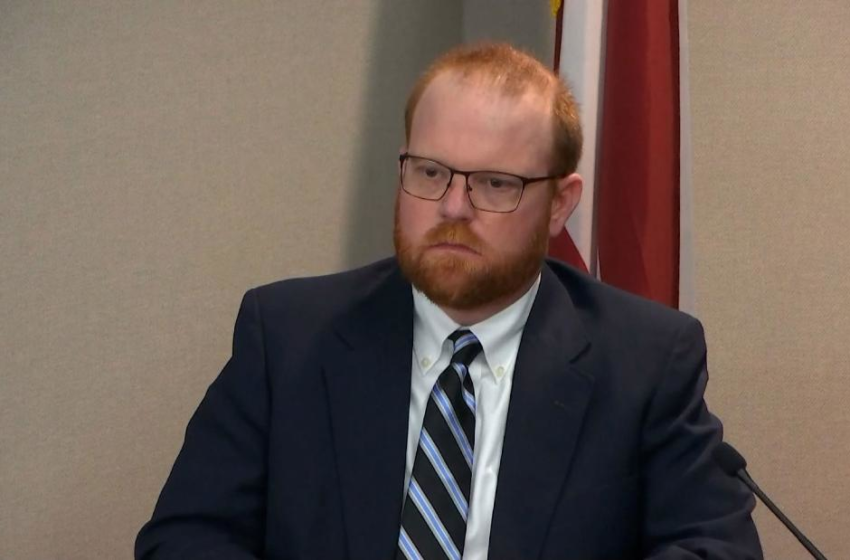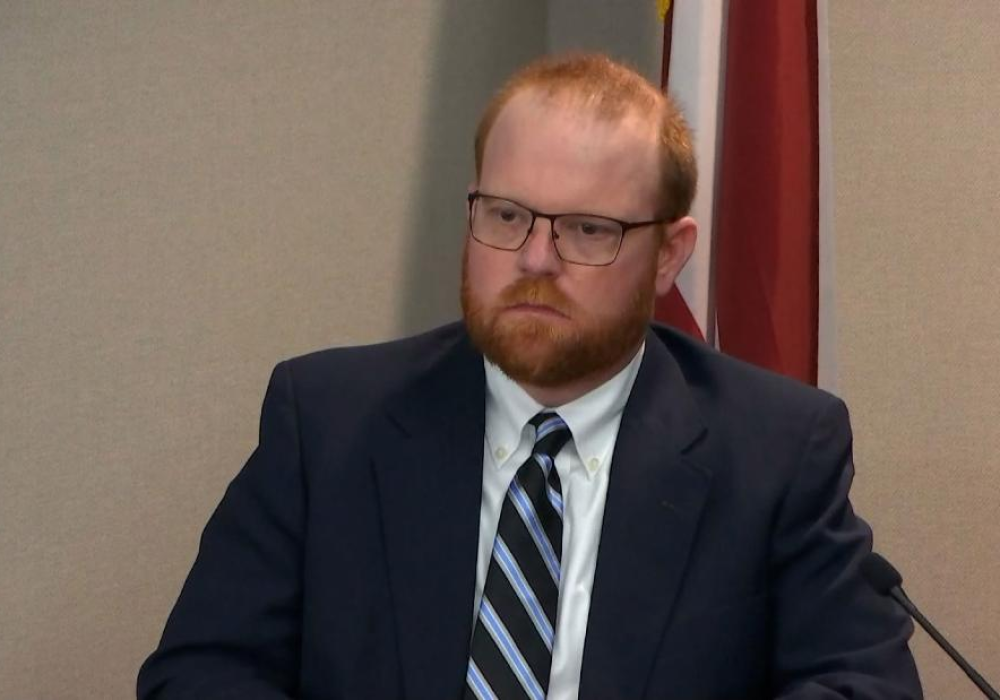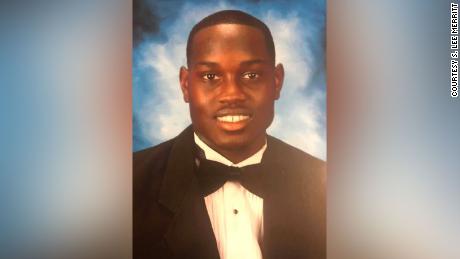Defense attorneys rested their case following the prosecution’s cross-examination of Travis McMichael as well as testimony from several residents in the neighborhood where the shooting took place.
Closing arguments will begin Monday morning.
Prosecutor pressed defendant about differences in his accounts
She also probed him on the final moments of Arbery’s life — including asking why McMichael ever raised his shotgun.
“You’re not letting him run away — you’re pointing (the) shotgun at him,” prosecutor Linda Dunikowski said about the encounter during cross-examination.
“I am not letting him run to me, directly to me,” McMichael countered, talking of his raising his weapon.
On Thursday, Dunikowski challenged McMichael over what she said were inconsistencies in his accounts. That included not telling police initially that he and his father were trying to make a citizen’s arrest, though that’s what the defense has since contended. She also covered differences in his accounts on when and where he told Arbery certain things, such as to stop.
McMichael responded he was “scattered” and “mixed up” in the hours after the shooting, because “this is the most traumatic event I’ve ever been through in my life.”
McMichael also acknowledged several times, under Dunikowski’s questioning, that he never saw Arbery armed during the pursuit, never heard Arbery verbally threaten him and that Arbery never responded or showed any interest in conversing with McMichael as he tried to ask what he was doing.
She also pushed him on what he chose not to do.
“You could have driven behind (Arbery) and not spoken to him at all,” and “you could have stayed in your truck” instead of getting out and eventually drawing a gun, Dunikowski said.
McMichael responded “yes” to both statements.
Prosecutor probes Travis McMichael on final encounter
On Thursday, Dunikowski also challenged Travis McMichael on why he now claims Arbery grabbed his gun in the final encounter, since he initially told police he didn’t know if that’s what happened.
“It’s obvious he had the gun. … I obviously missed every minute detail” when speaking to police that day under stress, McMichael testified Thursday.
When McMichael described the encounter Wednesday, he said that after he and his father pursued Arbery in a pickup truck, he’d parked his vehicle and saw Arbery coming in their direction. He yelled at Arbery to “stop where you’re at” and went to grab his shotgun. Arbery turned and ran, before eventually coming back again, Travis McMichael said.
As Arbery got closer, Travis McMichael drew his weapon on Arbery, McMichael said Wednesday. Arbery darted to the right and later, “starts running back straight to the truck where my father’s at the back of it.” The younger McMichael testified he made his way to the front of the vehicle, and Arbery “turns and is on me, is on me in a flash.”
“He grabs the shotgun, and I believe I was struck on that first instance that we made contact,” Travis McMichael testified Wednesday.
On Wednesday, McMichael said that “if he would have got the shotgun from me, then it was, this is a life-or-death situation. And I’m gonna have to stop him from doing this, so I shot.”
Dunikowski asked him Thursday about what she called his “attitudes toward … vigilantism.” She asked about a January 2019 Facebook exchange with somoene, in which that person felt that examples needed to be made out of somebody if they steal things.
“You (responded), ‘That’s right. Hope y’all catch the vermin,'” Dunikowski said.
“That’s correct,” McMichael said.
Travis McMichael describes days and moments leading to pursuit
“I was under the assumption that it was the same individual that I saw (at the unfinished home) on the 11th,” and he had heard previously that things had been stolen from the site, Travis McMichael testified.
“(We decided) let’s try to hold him for the police to talk to him,” Travis McMichael testified. He said he his father told him he had called police, and so assumed police were on their way — but it turned out the father did not have his phone.
The son testified he tried to ask Arbery while still in his truck what was going on, “trying to deescalate” the situation. He said Arbery did not respond and kept running. He testified he tried talking to Arbery a second time, during which Arbery stopped, did not say anything, but took off again after Travis McMichael said police were coming.
Only late in the sequence, shortly before the shooting, did Travis McMichael realize that his father hadn’t called police. Travis McMichael dialed 911 and handed the phone to his father, he testified.
Arbery had no weapon when he was killed, authorities said.
CNN’s Travis Caldwell, Christina Maxouris and Chris Boyette contributed to this report.


















